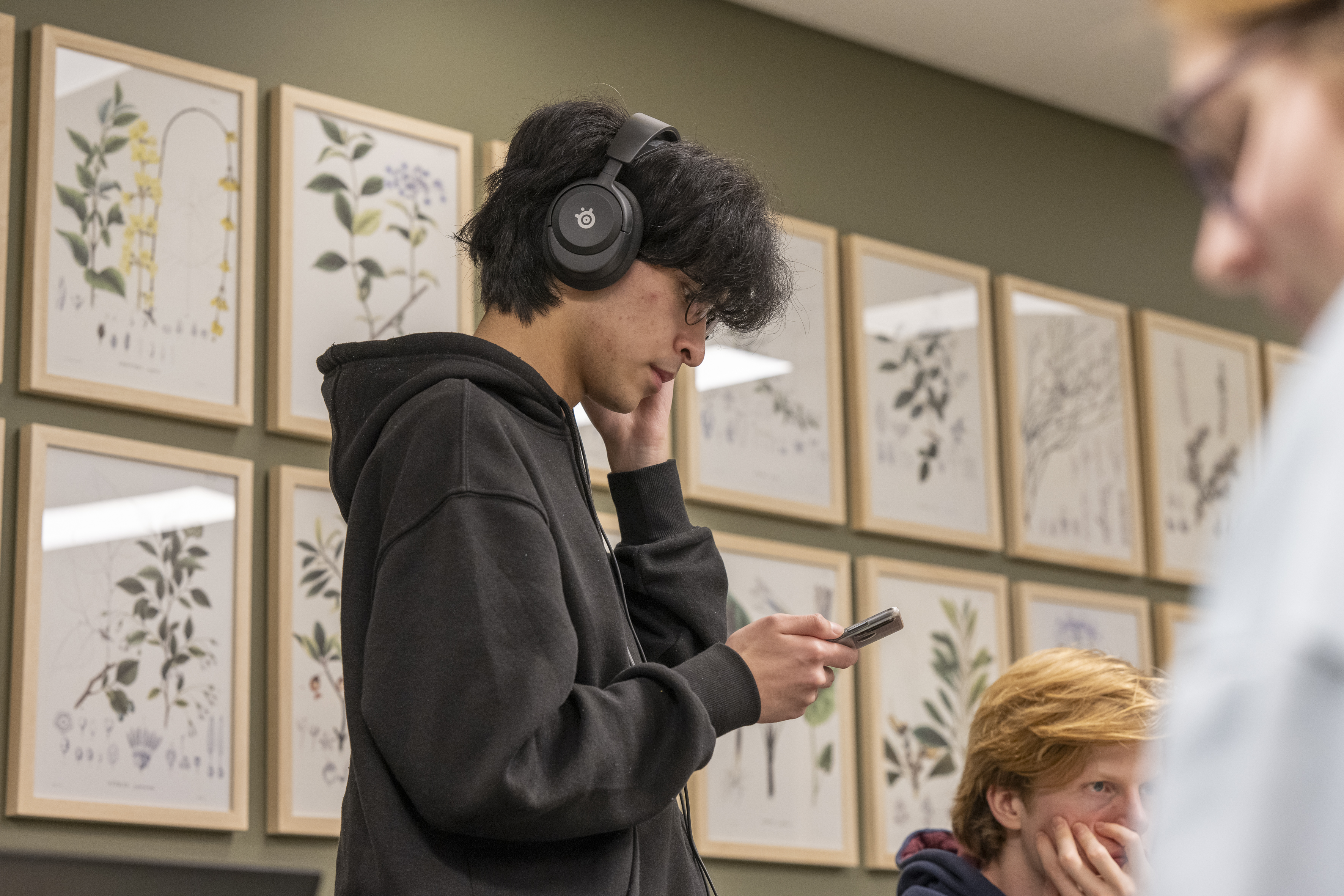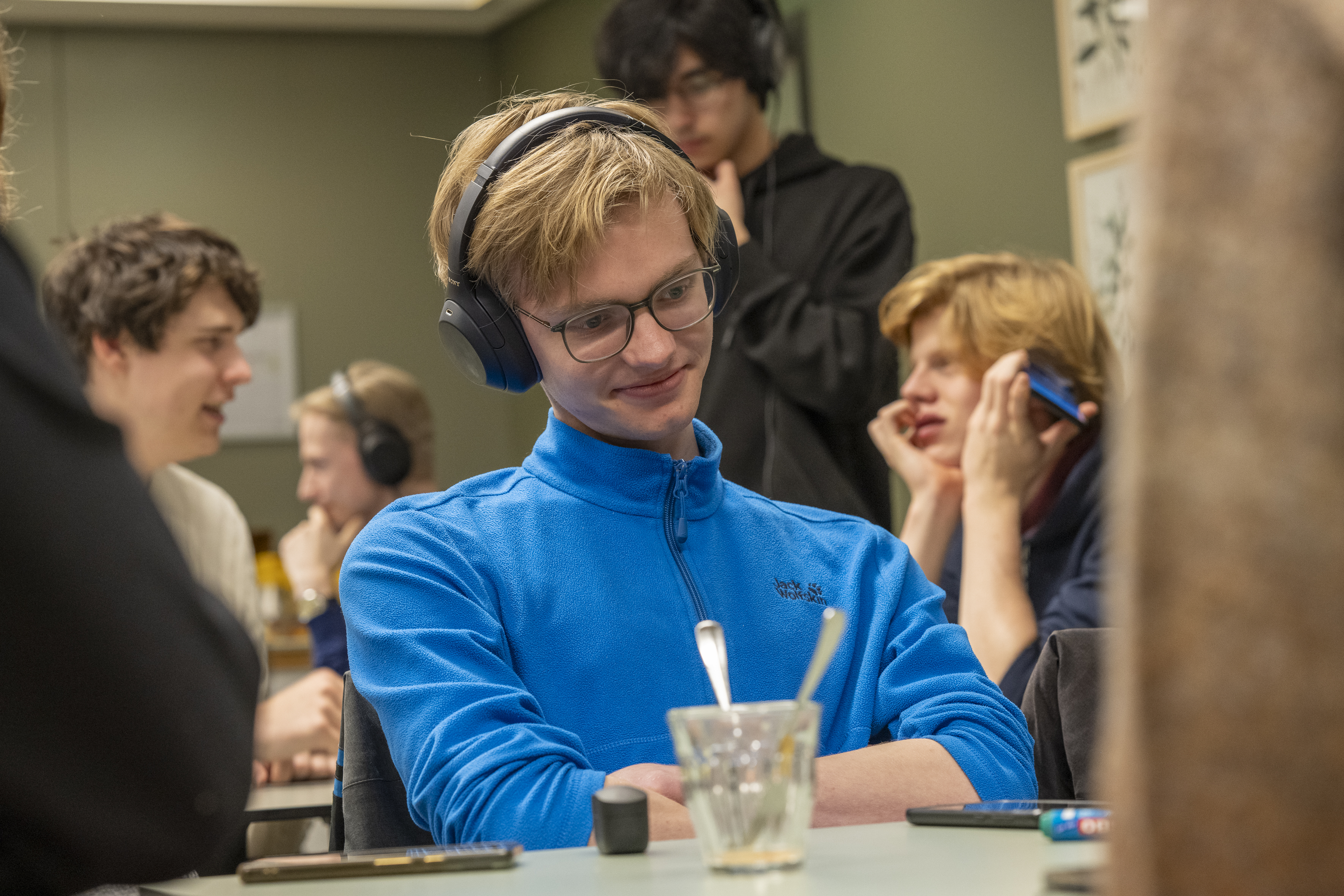
What does biodiversity mean to us? Honours students produce podcasts about extinction
For the Bachelor Honours Class 'Mass Extinction', students produced podcasts about the past, the present and the future of mass extinctions. What exactly is lost when a species goes extinct? What are the practical consequences? But also: does humanity have the moral duty to protect other species?
The concept ‘mass extinction’ is central to the course. Teacher Joris Buis: ‘Mass extinction means that 75% of all species go extinct in a relatively short time span. There have been five mass extinctions, the last of which was the extinction of the non-avian dinosaurs. Since the dawn of mankind, we have lost approximately 1% of species. That may seem a long way from 75%, but the speed at which species are going extinct has exploded, with some rates exceeding 100 times the baseline rates of non-human eras. The question that many scientists are now asking is: are we at the beginning of the sixth mass extinction?’
Surrounded by the greenery of the Hortus Botanicus, groups of students have gathered in the Garden Room. They are here to listen to the podcasts they made about different aspects of extinction. Radio producer Ruben van Haften helped the students make the podcasts. ‘A podcast is a great way of explaining in an accessible way why your research is interesting and relevant. It is also the perfect medium to really go in-depth and discuss relatively niche subjects.’

Oopstinction
Spanning a variety of subjects, the podcasts manage to inform and entertain at the same time. Students Myrthe (20, Biomedical Science) and Ike (23, Law and Psychology) worked with their group to make the podcast Oopstinction, about human activities that cause ecological damage by accident.
‘There are so many things we don’t know about nature’
Joined by biologist Menno Schilthuizen, they discuss the 9/11 memorial in Manhattan, that lights up the New York skies for one night every year. Inadvertently, around 160,000 birds annually get disoriented by the lights during their migration. The result: confusion, exhaustion and deadly accidents when birds collide with skyscrapers.
‘There are so many things we don’t know about nature. Animals do things that we are completely unaware of until we find them somewhere, dead’, says Myrthe. Ike adds: ‘Oopstinction is about things that happen by accident, but there are so many things that we have influence on. There is a lot you can do [to protect other species]. That has really stuck with me.’

Past, present and future
To accurately interpret mass extinction, the past and the future are just as important as the present, says Buis. ‘The class was set up to tackle extinction interdisciplinarily, rather than purely taking the perspective of geology. This involves history, for example. Within Christianity, it was for centuries considered blasphemy to say that species could die out, because God’s creation was supposedly perfect. It wasn’t until the French Revolution that that notion started to change.’
‘This class has taught me that making a podcast is not as difficult as I thought’
Extinction and the human influence on it have never been as prevalent as they are today. That introduces some tough questions. ‘What does the disappearance of a species from an ecosystem mean for our own future? For our economy? Can we substitute the functions that extinct species had? What can we do to preserve our biodiversity? How do we look at nature conservation and animal rights?’
‘When you want to properly analyse a subject, it is enriching to look at it from different perspectives. Both to gain an understanding of the problem and to think of solutions. When you look at extinction purely from an economical or biological perspective, you’re limiting yourself. Disciplinary sciences are essential for a really in-depth analysis of a specific subject, but they need to melt together to see the big picture.’
Social-political conversation
Biology student Levi (25) wanted to look at extinction from a different perspective. ‘When we discuss extinction, it’s all about the biology and the facts. Here, it was more of a social-political conversation. It was very interesting to see what students from other disciplines have to say.’
‘When you realise that not everybody has the same background and basic knowledge, it enables you to participate in a discussion without bias. As a biologist, of course I think about extinction a certain way. But in the end, working together with politicians, for example, is the only way to really work toward solutions.’
A podcast might be just the right medium to engage in that social-political conversation. Levi: ‘If you want to make something known to the public, you have to use modern media. This class has taught me that making a podcast is not as difficult as I thought. I think it’s very likely that I will come back to podcast making if I have research I want to make accessible in the future.’
Text: Merijn Mulder
Photography: Buro JP





